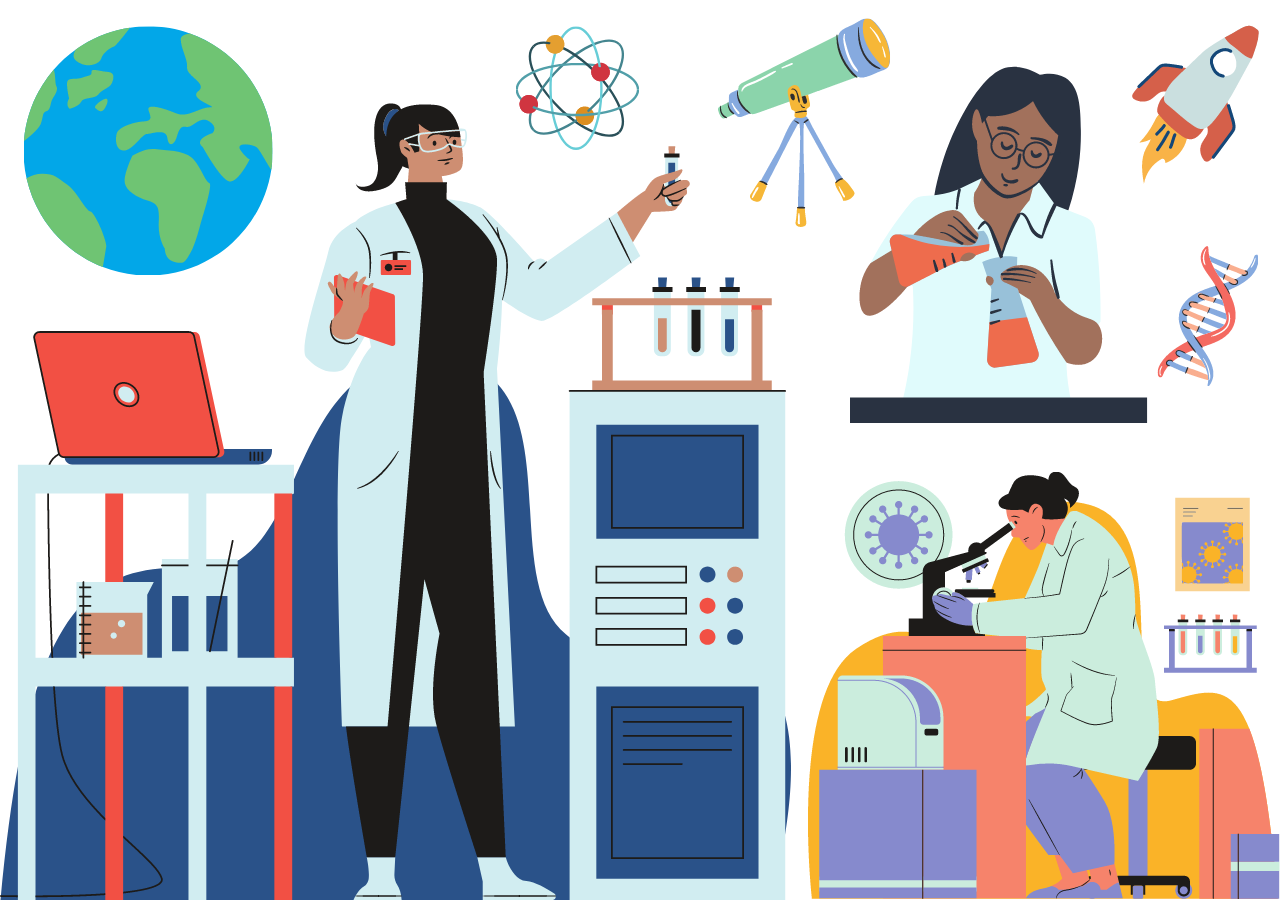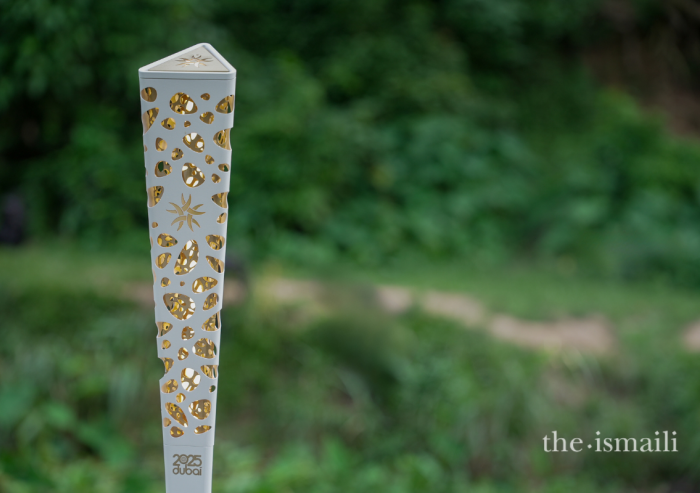Throughout history, great Muslim intellectuals and scholars have served as an example of the rich heritage of learning which contributed towards the flourishing of global civilisation, particularly in the discipline of science.
One example is the notable female astronomer Mariam al-Ijliya, who advanced and fine-tuned Greek instruments such as the astrolabe in 10th-century Syria. The astrolabe helped to make a significant contribution to what would later become known as space science.
Following in her footsteps centuries later, members of the Jamat have worked hard to gain a foothold in science-related fields, and today find themselves at the cutting edge of innovation. Like any area of study, the scientific world benefits from diversity. Bringing in fresh perspectives, talent, and creativity is how innovative ideas develop, and how new knowledge is formed.
One increasingly prominent area of science is robotics, a rapidly-evolving sphere with the potential to completely change how our world functions. A robot is a programmable machine, capable of carrying out a complex series of actions automatically. It is the chosen domain of study for Dr Malika Meghjani, an assistant professor at the Singapore University of Technology and Design, who also last year featured on a list of the world’s 50 most renowned women in robotics.
She works with marine robots such as underwater vehicles, which play an important role in observing environmental changes in coral reefs, and monitoring iceberg movements. This not only helps to provide early warning signs for potential flooding, but also avoids humans having to repeatedly dive into freezing waters.
“I think robots can do a wonderful job by doing repeated surveys of the region and going down and collecting the video footage that is required,” she said.
Malika has also worked with ground robots such as self-driving cars, teaching them how to avoid collisions and reach their destinations safely.
“It looks as if we’re going to have a long transition phase where autonomous vehicles and manually driven vehicles would both be on the road for a very long time, and that’s why it’s very important for the autonomous vehicles to understand the intent of human-driven vehicles and be able to integrate into such environments.”
All aspiring scientists need an initial opportunity for discovery, to understand what to look for, and to learn from one another. A small event or reaction in one place can have a big effect somewhere else, a concept that has become known as ‘the butterfly effect.’
Hoping to inspire young minds during lockdowns last year, a collaboration of Aga Khan Education Boards launched The Global STEM Festival, for 3-17-year-olds to explore Science, Technology, Engineering, and Mathematics activities at home.
During the festival, six-year-old Maria Ahmad from Portugal was able to test whether items such as coins, cotton, a rock, a balloon, and a shell would float when placed into a small pool of water.
“This was my second science project with water,” said Maria. “By doing this I could feed my passion for the water world and also learn the reasons why each item floated or not. It was an amazing experience and I cannot wait to try it again with different items.”
Similarly, high school student Vaneeza Rupani has been captivated by space exploration ever since she was a little girl. She fed her interest by reading books about space at her school library and visiting the U.S. Space and Rocket Center in Huntsville, Alabama.
“The idea that there is an endless number of worlds out there waiting to be discovered is fascinating, and the idea that anything at all could be found is extremely exciting,” she said.
Fueled by her passion for space, Vaneeza entered a NASA essay contest, and among thousands of participants, won the opportunity to name the helicopter that accompanied NASA’s 2020 Mars mission. She later had the opportunity to meet the team that designed the helicopter, and was invited to view the launch of the rocket last summer.
One experiment or activity can ignite the spark that eventually leads to a career choice, which can make a substantial impact on the lives of many people, now and into the future. A young scientist today, with the right grounding and training, could later become a recognised personality on the international stage, like Rumina Velshi.
Rumina, President of the Canadian Nuclear Safety Commission and Chairperson of the commission on safety standards for the International Atomic Energy Agency, has advocated for alternative sources of energy to reduce humanity’s dependence on fossil fuels, and thereby reduce the negative effects of climate change.
“What is being accepted increasingly is that our source of energy has to change,” said Rumina, who trained as a professional engineer and has over 35 years of experience in positions at Canada’s largest nuclear utility.
“There is a recognition that we need more renewables, and increasing acceptance that nuclear power needs to play a much larger role when it comes to energy production. Currently 10% of electricity comes from nuclear power, and that needs to change not only to control climate change, but also to address the issue of energy poverty.”
At the present time, around one billion people on Earth don’t have access to electricity, and three billion people don’t have access to clean fuels for cooking, which comes at a high health cost due to indoor pollution.
One proposed solution for generating clean energy in an intelligent way is the small modular reactor (SMR), a safe, affordable, and easily-transportable power plant.
“I believe that SMRs are going to transform the energy sector,” said Rumina.
“They will do to the energy sector what the smartphone has done to the telecommunications business. It’s a great opportunity for those of us in the industry, to be here at this time, when there is so much exciting work happening.”
---
To learn more about developments in science and Ismailis working in the field, watch episodes of Science & Technology Unleashed at The Ismaili TV on demand.








